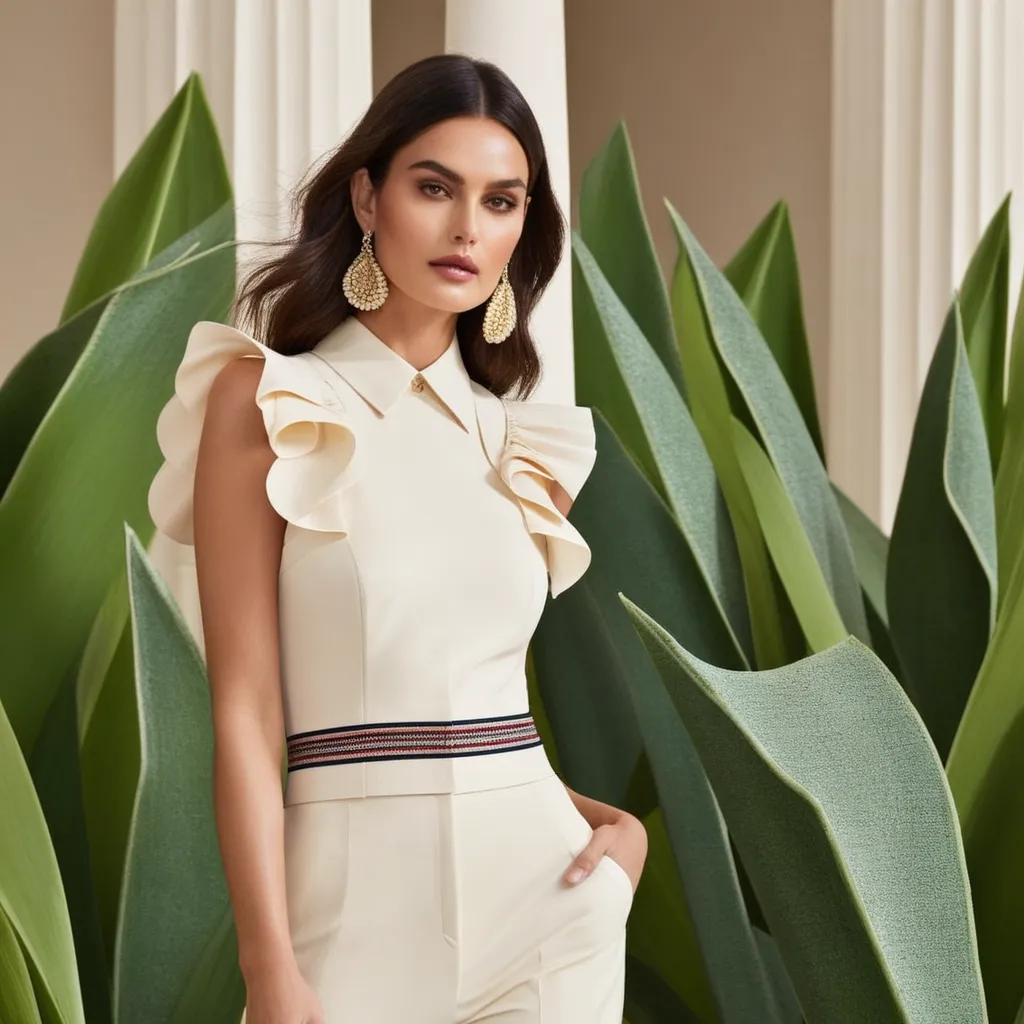The Rise of Sustainable Fashion
Hey fashion-forward thinkers and eco-conscious trendsetters! Let's talk about the game-changing shift happening in the world of style – the rise of sustainable fashion. From eco-friendly fabrics to ethical production practices, the fashion industry is undergoing a revolutionary transformation. As someone who has embraced the journey toward a more sustainable wardrobe, join me as we explore the key elements, share personal insights, and celebrate the positive impact of sustainable fashion on our planet.

Beyond Fast Fashion: The Environmental Toll
Fast fashion, characterized by rapid production and quick turnover of clothing styles, has long been the norm. However, the environmental consequences of this model, from excessive water usage to textile waste, have prompted a reevaluation of how we approach fashion.
A Closet Reality Check
My own journey into sustainable fashion began with a closet reality check. The abundance of rarely worn clothes and the realization of their environmental footprint led me to question the throwaway culture promoted by fast fashion. It was time to shift towards a more mindful and sustainable approach to dressing.
Sustainable Fabrics: Embracing Eco-Friendly Choices
One of the pillars of sustainable fashion lies in the materials used. Traditional fabrics like cotton, while natural, often come with a hefty environmental cost. The rise of sustainable fabrics offers a greener alternative.
Embracing Tencel and Organic Cotton
Discovering Tencel, a fabric derived from sustainably sourced wood pulp, was a game-changer. Its softness, breathability, and eco-friendly production methods made it a staple in my sustainable wardrobe. Organic cotton, grown without harmful chemicals, also became a go-to choice for guilt-free fashion indulgence.
Ethical Production Practices: Fair Wages and Working Conditions
Sustainable fashion goes beyond materials; it's about the people who make our clothes. Ethical production practices ensure fair wages, safe working conditions, and dignity for the workers behind the scenes.
Journey to Fair Trade Fashion
Exploring fair trade fashion brands opened my eyes to the stories of artisans and craftsmen who contribute to the garments we wear. Knowing that my fashion choices support fair wages and ethical treatment of workers added a layer of meaning to each piece in my wardrobe.
Circular Fashion: Reducing Waste and Extending Lifecycles
The concept of circular fashion challenges the linear model of 'take, make, dispose' by emphasizing recycling, upcycling, and extending the lifespan of clothing. It's about creating a sustainable loop.
Upcycling Adventures
Embarking on upcycling adventures turned old clothes into new treasures. From turning worn-out jeans into stylish bags to transforming t-shirts into trendy crop tops, the creative aspect of circular fashion became both a hobby and a sustainable fashion statement.
Sustainable Fashion Brands: Leading the Change
As consumer demand for sustainable options grows, fashion brands are stepping up to the challenge. Sustainable fashion brands prioritize eco-friendly materials, ethical production, and transparency in their supply chains.
Supporting Local and Sustainable Labels
Exploring local and sustainable fashion labels became a way to align my style choices with my values. From handmade accessories crafted from recycled materials to locally sourced and produced garments, these brands showcase the diversity and innovation within the sustainable fashion landscape.
Conscious Consumerism: Making Informed Choices
Becoming a conscious consumer involves making informed choices about the fashion we buy. It's about quality over quantity, supporting sustainable brands, and considering the lifecycle of each piece.
Quality Over Quantity Epiphany
A shift in mindset from chasing trends to investing in timeless pieces marked my conscious consumerism journey. Choosing quality over quantity not only reduced my environmental impact but also led to a more curated and personal wardrobe.
Future of Fashion: A Greener Runway
In conclusion, the rise of sustainable fashion is not just a trend; it's a fundamental shift toward a greener and more responsible industry. As we continue to embrace eco-friendly fabrics, ethical production practices, and circular fashion principles, the future of fashion looks promising. By making conscious choices and supporting sustainable brands, we contribute to a runway that prioritizes both style and sustainability. So, here's to a wardrobe that not only looks good but also does good for the planet – a win-win for fashion enthusiasts and Mother Earth alike!

No comments:
Post a Comment